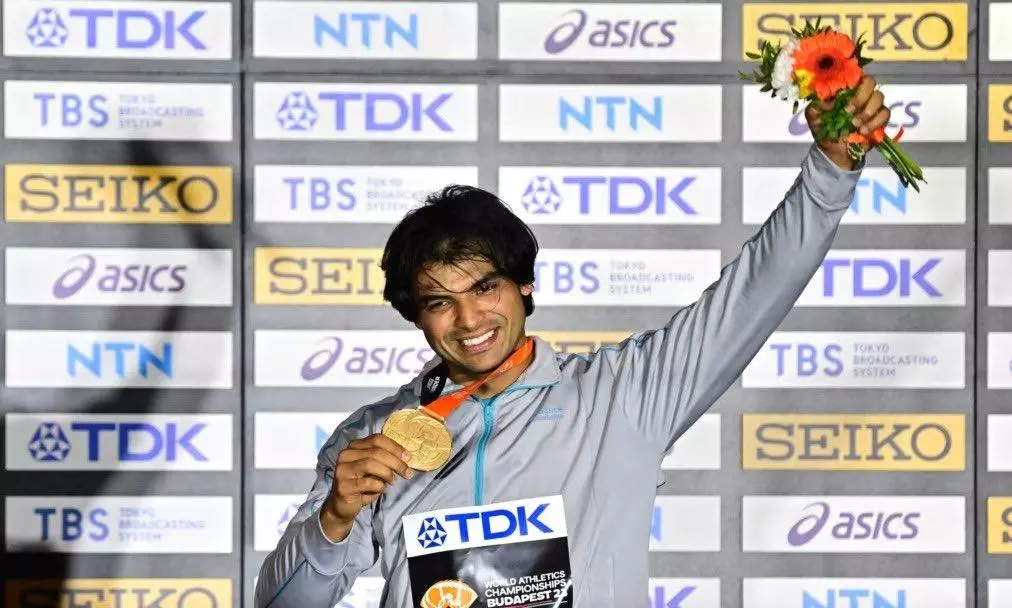
Mind Games: Navigating the psychological challenges of being an Olympian

Mumbai, Jul 24 (PTI) Human excellence is often closely linked to human fortitude and Olympics is the prime example of it.
The Paris Games, starting on Friday, will be a gathering of 10,500 athletes, 117 of them from India, competing for a mere 329 medals.
Needless to say, talent alone won't decide who finishes on the podium. It will also boil down to the mind and how one can discipline it to cope with the grandeur and pressure of the big moments.
Visualisation, blocking out the noise and being focussed are among the techniques that are often talked about but are they as easy to implement in a highly competitive environment? "There is a lot of pressure (already) in sports and when you compete at the Olympics, you have to be someone who has gone through a lot of highs and lows as well," explains Dr Divya Jain, a sports psychologist with Fortis Healthcare.
"In sports, you're confronted with winning and losing on a day-to-day basis, so it's not about winning every time; it's about how you recover, how quickly you bounce back from a mistake," she said while explaining the difference between Olympians and other athletes.
"There is public scrutiny, staying away from family, the noise of the Games... All of these are aspects that athletes have to cope with at a psychological level," she added.
For the next few weeks athletes will try to be at the peak of their form. To do that, they have trained physically and mentally but the medal winners will be those who are a tad more tenacious and focussed than the rest.
"Not only do they have their own high expectations, but they also carry the hopes of their entire country and scrutiny of a global audience," says Keerthana Swaminathan, a sports psychologist and president of the Indian Sport Psychologists Association.
"Being away from families, friends and home is a part of sportspersons' lives but in Olympics, with all eyes on them, it could lead to further stress and anxiety.
"Olympians often have to deal with extensive travel and long periods away from family and friends, which can be really isolating. This combination can take a serious toll on their mental health, making it crucial for them to have strong support systems and access to mental health resources," she adds.
And to ensure that Indian athletes have calmer minds, the a first of its kind specialised medical team is accompanying the contingent, featuring wellness specialists, and a sleep scientist among the regular medical staff.
"Representing and competing for one's country can instil a deep sense of responsibility and pride but that also adds an additional layer of pressure as athletes at the Olympics often feel that they are competing for national glory," says Dr Nanaki J Chadha, a Sport and Performance Psychologist.
Dealing with distractions is something that every athlete needs to learn since focussing on the 'here and now' goes a long way.
"It's also about being able to harness that pressure because it's natural for anyone to be in a high-stress situation, to have certain responses to that pressure. Your heart rate may increase, muscle tension may change, your rhythm may change," explains Dr Divya Jain.
"So you need to train yourself to work through that pressure and also to harness that pressure to help do better, actually become stronger, (to) have more explosive movement, recognising that that's the body we are preparing, rather than clearing that kind of competition situation," she explains.
That mental health is a crucial aspect of an athlete's overall competitive preparedness has been stressed quite often by India's first individual Olympic gold-medallist Abhinav Bindra. Bindra has often tlaked about his own struggles before the Beijing top finish.
What separates an Olympic medallist from others?
"Medallists have an extraordinary ability to maintain unshakeable focus and concentration, even in the most intense situations," Keerthana says, "They can block out distractions — whether it's the noise of the crowd, the pressure of the moment, or the actions of their competitors — and stay entirely present in their performance," she adds.
It is something that Bindra and some of other top Indian sportspersons have also often pointed out. Being flexible to last-minute changes and self-assurance are also an important aspect.
"They trust in their training, abilities and preparation, which helps them take risks when necessary and push their limits without fear of failure. This self-assurance also acts as a buffer against the pressure and expectations they face, enabling them to perform at their peak," Keerthana says.
The winners also tend to remain focussed for the entirety of the competition, says Dr Nanaki.
"Medalists often possess superior mental resilience, allowing them to perform under pressure and that also helps them recover quickly from setbacks. Now, throughout the competition, the ability to maintain focus and concentration is extremely crucial," she says. PTI

